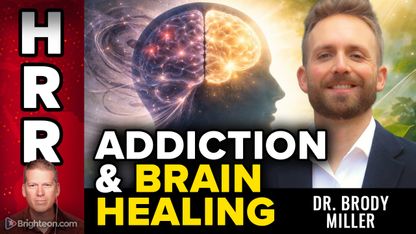
Demographically speaking, excess deaths among youth are noticeably higher every time a new batch of them gets mass-jabbed for the Fauci Flu – though governments are remiss to make the connection.
The New Zealand Ministry of Health regularly publishes detailed reports about the Chinese Virus and its associated injections, including any adverse events that get reported.
These reports include regular updates about deaths that occur within 21 days post-injection, New Zealand being one of the only countries – if not the only – country that does this.
New Zealand also maintains a national covid injection registry as well as a national death registry, which can be used together for matching and assessment purposes.
"The ministry breaks down the deaths by age, ranging from 0-9 through over 80," writes Alex Berenson on his Substack. "It then compares the actual number of people who died in the three weeks after the shots to the 'expected' number."
"That figure is simply the number of deaths demographers would have expected over a random three-week period based on actuarial tables estimating mortality."
Young people appear to be more prone to dying from covid jabs than older people, in many cases
Interestingly, the data for older age groups suggests that far fewer than expected elderly people are dying post-injection compared to younger people post-injection. In other words, the jabs almost appear more harmful to the young than to the old.
"In general, vaccinated people over the age of 30 had roughly 40 to 55 percent lower death rates than the unvaccinated over that period," Berenson suggests. "They had that apparent benefit after both doses and the booster."
"To be clear, this gap does NOT suggest that the mRNA vaccines reduce all-cause deaths. No one, not even the most fanatical vaccine advocate, would suggest they do. In the clinical trials of mRNA vaccines, all-cause deaths were almost exactly balanced between vaccine and placebo recipients."
The explanation for this rather large gap is a phenomenon known as "healthy vaccine user bias," meaning physicians are unlikely to offer vaccines to people who are nearing the end of their lives due to age or pre-existing health conditions.
"One reason for the number of deaths in the vaccinated group appearing to be lower could be that healthcare professionals of extremely frail patients give the advice not to get vaccinated," New Zealand health authorities noted.
For people 30 years of age and younger, however – and specifically between ages 10 and 19 – the data shows that deaths are substantially higher even after just one injection, let alone two, three or more.
"The shift between the under 30 and over 30 groups is remarkable," Berenson notes.
"Unfortunately, the ministry does not provide any information on the causes of death in any age range, so it is impossible to determine whether myocarditis or other cardiac conditions played a major role in the higher-than-expected figures."
So what does it all mean? Well, in simple terms, the injections appear much more likely to kill off younger people who get them than older people who get them. The mRNA (messenger RNA) component specifically is of critical concern as the heart inflammation effects (i.e., myocarditis) are especially pronounced in younger people.
"I would expect deaths and serious health issues to just keep dribbling out over years," wrote a commenter who lives in a community with lots of jabbed elderly people who while they might seem okay now could face problems later on down the road.
The latest news about Chinese Virus injection injuries and deaths can be found at ChemicalViolence.com.
Sources for this article include:
Please contact us for more information.






















